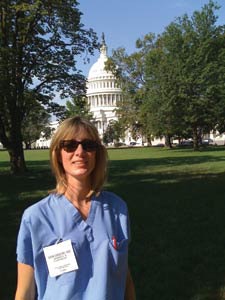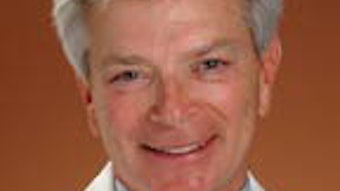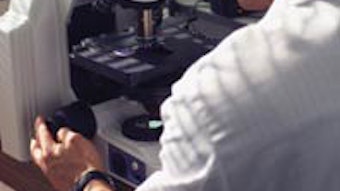Research, Competencies, and the Art of Medicine
In the realm of medical education, there is significant emphasis on the competencies. Most practicing otolaryngologists were trained before establishment of the competencies, but the Accreditation Council for Graduate Medical Education (ACGME) now expects resident physicians to be trained and evaluated in each of the following: • Medical Knowledge • Patient Care • Interpersonal and Communication Skills • Professionalism • Systems-Based Practice • Problem-Based Learning and Improvement These are the areas established by the ACGME that make a competent physician, and research runs through all of them. Whether you are in a private practice setting, academics, or a resident in training, research has and will continue to impact your practice. It is not difficult to see how research adds to medical knowledge and improves patient care; otolaryngologists incorporate research into daily practice. Each advancement in our specialty is the product of research. Underlying each diagnostic and therapeutic practice, there is a wealth of knowledge accumulated during the history of our specialty from the performance of research. The novel concepts and cutting-edge research of today often become the accepted practices of tomorrow, thereby improving patient care. But what does research have to do with interpersonal and communication skills or professionalism? Communication with patients is a key component of the physician-patient relationship, and recruiting patients into a research study requires discussing the project with the patient. The research consent process can be as in depth as explaining a surgical procedure, but like any form of communication, it deepens the relationship between the patient and physician. Research also involves communicating with other physicians and healthcare providers as part of the research and patient care team and ultimately communicating results to colleagues at meetings and in the literature. Professionalism can be difficult to define, but the ACGME definition includes compassion, integrity, respect, accountability, sensitivity, and “responsiveness to patient needs that supersedes self-interest.” Though less structured than a definition per se, the concept of professionalism can be likened to an internal compass that guides one to “do the right thing.” Professionalism sets us apart as physicians. Research stems from the quest for knowledge and the desire to improve patient care and well being, and it is at the core of what makes us professionals. We respond to that innate drive by advancing otolaryngology knowledge through research. Systems-based practice requires knowledge of practice and delivery systems, cost-effective healthcare, advocating for quality patient care, and partnering with others in the healthcare system. Advances in medical knowledge obtained through research allow us to practice the best and most effective care. What better way to advocate for quality patient care than discover best practices through research? And certainly research is needed to determine the most cost-effective care practices. Problem-based learning and improvement (PBLI) requires physicians to analyze their practices and apply evidence to improve care. It includes using information technology to access and manage information for educational purposes, and it also includes educating others. Conducting and presenting research and attending research conferences allow us to actively engage in PBLI. Research presentations are thought-provoking and keep us up to date on the evolution of our specialty. In addition to the annual meeting, there are numerous regional and national meetings that showcase the work of talented colleagues. And how about attending the research day at your alma mater or local residency training program? You will likely be impressed with what the residents are doing, and your presence at such events means a lot to the residents and the attending faculty. You don’t have to don a lab coat and grab a pipette to be involved in research. Clinical research is extremely valuable and can be done in any kind of practice. Check Education and Research Academy website pages, www.entnet.org, to find studies open to recruitment as well as information about the CORE Grant Program. Sure, there is work involved in getting your study approved and up and running, but it is an excellent opportunity to collaborate with your otolaryngology colleagues for assistance, and it is well worth it when you see your work published. You also can contribute by reviewing for a journal in our specialty. And research doesn’t happen without financial support. Consider donating to the AAO-HNSF Millennium Society for Research/Quality or donate to your alma mater training program or local otolaryngology training program to support the research of resident trainees and our colleagues in academics. Consider it an investment in the future of otolaryngology—head and neck surgery. Sir William Osler said, “The practice of medicine is an art based on science.” In spite of financial and political pressures, we as otolaryngologists will continue to support research. This is a fundamental aspect of being competent physicians and professionals.
 Susan R. Cordes, MD Board of Governors Member-at-Large
Susan R. Cordes, MD Board of Governors Member-at-LargeIn the realm of medical education, there is significant emphasis on the competencies. Most practicing otolaryngologists were trained before establishment of the competencies, but the Accreditation Council for Graduate Medical Education (ACGME) now expects resident physicians to be trained and evaluated in each of the following:
| • | Medical Knowledge |
| • | Patient Care |
| • | Interpersonal and Communication Skills |
| • | Professionalism |
| • | Systems-Based Practice |
| • | Problem-Based Learning and Improvement |
These are the areas established by the ACGME that make a competent physician, and research runs through all of them. Whether you are in a private practice setting, academics, or a resident in training, research has and will continue to impact your practice.
It is not difficult to see how research adds to medical knowledge and improves patient care; otolaryngologists incorporate research into daily practice. Each advancement in our specialty is the product of research. Underlying each diagnostic and therapeutic practice, there is a wealth of knowledge accumulated during the history of our specialty from the performance of research. The novel concepts and cutting-edge research of today often become the accepted practices of tomorrow, thereby improving patient care.
But what does research have to do with interpersonal and communication skills or professionalism? Communication with patients is a key component of the physician-patient relationship, and recruiting patients into a research study requires discussing the project with the patient. The research consent process can be as in depth as explaining a surgical procedure, but like any form of communication, it deepens the relationship between the patient and physician. Research also involves communicating with other physicians and healthcare providers as part of the research and patient care team and ultimately communicating results to colleagues at meetings and in the literature.
Professionalism can be difficult to define, but the ACGME definition includes compassion, integrity, respect, accountability, sensitivity, and “responsiveness to patient needs that supersedes self-interest.” Though less structured than a definition per se, the concept of professionalism can be likened to an internal compass that guides one to “do the right thing.” Professionalism sets us apart as physicians. Research stems from the quest for knowledge and the desire to improve patient care and well being, and it is at the core of what makes us professionals. We respond to that innate drive by advancing otolaryngology knowledge through research.
Systems-based practice requires knowledge of practice and delivery systems, cost-effective healthcare, advocating for quality patient care, and partnering with others in the healthcare system. Advances in medical knowledge obtained through research allow us to practice the best and most effective care. What better way to advocate for quality patient care than discover best practices through research? And certainly research is needed to determine the most cost-effective care practices.
Problem-based learning and improvement (PBLI) requires physicians to analyze their practices and apply evidence to improve care. It includes using information technology to access and manage information for educational purposes, and it also includes educating others. Conducting and presenting research and attending research conferences allow us to actively engage in PBLI. Research presentations are thought-provoking and keep us up to date on the evolution of our specialty. In addition to the annual meeting, there are numerous regional and national meetings that showcase the work of talented colleagues. And how about attending the research day at your alma mater or local residency training program? You will likely be impressed with what the residents are doing, and your presence at such events means a lot to the residents and the attending faculty.
You don’t have to don a lab coat and grab a pipette to be involved in research. Clinical research is extremely valuable and can be done in any kind of practice. Check Education and Research Academy website pages, www.entnet.org, to find studies open to recruitment as well as information about the CORE Grant Program. Sure, there is work involved in getting your study approved and up and running, but it is an excellent opportunity to collaborate with your otolaryngology colleagues for assistance, and it is well worth it when you see your work published. You also can contribute by reviewing for a journal in our specialty. And research doesn’t happen without financial support. Consider donating to the AAO-HNSF Millennium Society for Research/Quality or donate to your alma mater training program or local otolaryngology training program to support the research of resident trainees and our colleagues in academics. Consider it an investment in the future of otolaryngology—head and neck surgery.
Sir William Osler said, “The practice of medicine is an art based on science.” In spite of financial and political pressures, we as otolaryngologists will continue to support research. This is a fundamental aspect of being competent physicians and professionals.






